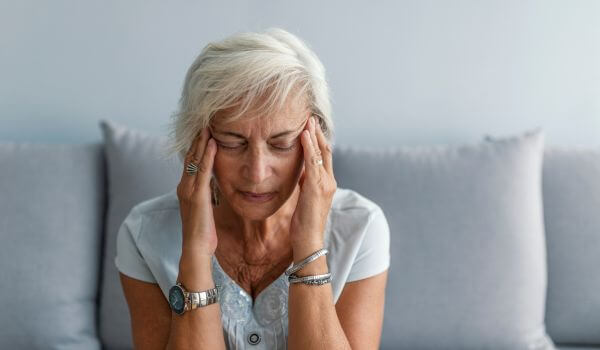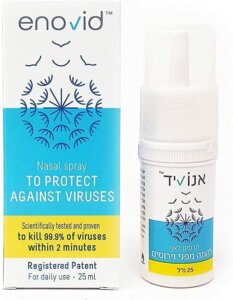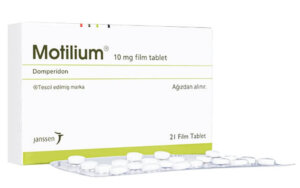
While medical science hasn’t yet found a cure, let alone a specific cause for IBS, I’m hoping that I can bring a little clarity and hope to anyone who is traveling on the same road as I found myself on when I first encountered the condition. I hope my tale can provide some understanding and guidance for women moving into this phase of their lives and experiencing similar symptoms.
The onset of Irritable Bowel Syndrome
Having reached my mid-sixties, I can reflect on a journey that began nearly twenty years ago. My encounters with IBS started around the time of my menopause. Menopause was a time of significant change for me, not just hormonally but also in terms of my digestive health. The first signs were subtle – occasional bloating and discomfort – but increasingly, they became impossible to ignore. I experienced alternating bouts of diarrhea and constipation, abdominal pain, and an unpredictable bowel routine that disrupted my daily life.
Initially, I attributed these symptoms to dietary changes or stress. However, as they persisted and intensified, I knew it was time to seek medical advice. My journey to a diagnosis was not straightforward. My family doctor dismissed my concerns as ‘just a part of aging’ or ‘menopausal changes.’ It was disheartening, but I persisted and sought advice from a gastroenterologist who close friends highly recommended.
Understanding IBS
My gastroenterologist explained that IBS is a common disorder affecting the large intestine. Its exact cause is unknown, but several factors can contribute to it, including muscular contractions in the intestine, nervous system irregularities, inflammation, and severe infection. For many women, menopause marks a significant shift in their IBS symptoms due to hormonal changes.
IBS shares many symptoms with some temporary conditions caused by gut infections, and also systemic conditions that can be more serious, like Irritable Bowel Disease (IBD), so it’s important when doctors start looking at a patient’s condition that these are either identified or ruled out at the beginning. IBD can be present either as ulcerative colitis (UC) or Crohn’s Disease. UC only affects the large and small intestines, while Crohn’s Disease can affect any portion of the GI tract, from mouth to anus. However, these all share some similar symptoms, and since there’s no definitive diagnosis for IBS, the first step for me was to undergo a simple stool test looking for infections and a colonoscopy to rule out or confirm IBD. Thank heavens, I was cleared of the more serious diagnosis, but that didn’t mean I had necessarily received “good news.”
As the gastro explained, Irritable Bowel Syndrome is known as a “functional somatic syndrome,” which is when no diseased or infected organ disease causes the symptoms. So, although the result of the investigation meant that my gut was healthy, the doctor still had to give me the sad news that the IBS symptoms I experienced could persist for the rest of my life, and now I was left with trying to find the right way to live with the condition.
Seeking answers and navigating treatment options
Because every case of IBS is unique and specific to the patient, there’s no one-size-fits-all treatment. The various approaches can help manage symptoms, but a cure isn’t in sight yet.
Here is a list of things I tried:
- Diet: In many cases, bouts of gastric distress are caused by a reaction to a few specific trigger foods or substances. Identifying and avoiding trigger foods was crucial. For me, reducing dairy and specific high-FODMAP foods (in my case, onions and garlic) did alleviate the frequency and severity of symptoms.
- Medications: I suffered mostly from a specific form of IBS called IBS-D (diarrhea predominant), although there were times when it switched over to the other type called IBS-C (constipation-predominant.) I used different medications as appropriate. For IBS-D, some simple over-the-counter pills like Imodium often provided symptom relief. When the bouts of constipation became worse, a laxative specifically intended for treating IBS-C called Linzess was prescribed.
- Probiotics: After each bout of severe IBS-D, building up the levels of live bacteria can help restore a healthy balance of gut flora. Flora Q2 is an effective probiotic that helped me by improving the flora in the gaps between bouts of IBS.
- Stress management: Menopause on its own can be a stressful period, and stress exacerbates IBS. I tried most of the recommended techniques, like yoga, meditation, and cognitive behavioral therapy, and all were beneficial.
- Regular exercise: Staying active by walking for an hour at least three times every week helped manage stress and regulate my bowel movements.
The importance of emotional support
Finding support was a game-changer. I connected with online communities and local support groups where I could share my experiences and learn from others. It was comforting to know I wasn’t alone.
Managing expectations
It’s crucial to understand that while Irritable Bowel Syndrome is a chronic condition, it can be managed effectively with the right approach. It requires patience and a willingness to adapt and try different treatments to find what works best for you.
Advocating for my own health
One of the most important lessons I learned was to be my own health advocate. If you feel something is wrong, persist until you get the answers and help you need. Educate yourself about IBS and menopause, and don’t hesitate to seek second opinions. Looking back, I am happier knowing that I didn’t allow myself to be put off by the initial responses that left me feeling that nothing could be done to relieve the distress. If that had been the case, I would have lost so much comfort over the subsequent decades and wouldn’t have had the privilege of being able to share what I learned with you now.
Living with Irritable Bowel Syndrome in menopause
One bit of relief that I can offer to female readers here is that there’s no direct link between IBS and the changes we go through in menopause. So if you are already starting to feel the shifts or are worrying about them looming a few years ahead, at least this can relieve any sense of inevitability that IBS is waiting for you. However, what doctors have told me is that the symptoms of IBS are generally a bit more severe for menopausal women than for younger women and, in general, for men of all ages.
Living with IBS during menopause has taught me the importance of listening to my body. It’s about balance, understanding, and acceptance. While there are challenging days, I have also learned to appreciate the good ones.
To you all navigating this journey, know that although IBS during menopause can be a challenging condition, with the right information and support, you can manage it effectively. Embrace this phase of life with knowledge, empowerment, and hope.
Summary
In summary, what I have learned is that managing IBS during menopause involves understanding the condition, exploring various treatment options, and finding a support system. It’s about being proactive in your health care and adapting to the changes in your body with patience and resilience. Remember, you’re not alone in this journey, and there’s a world full of people just like you ready to offer support, guidance, and help.
















